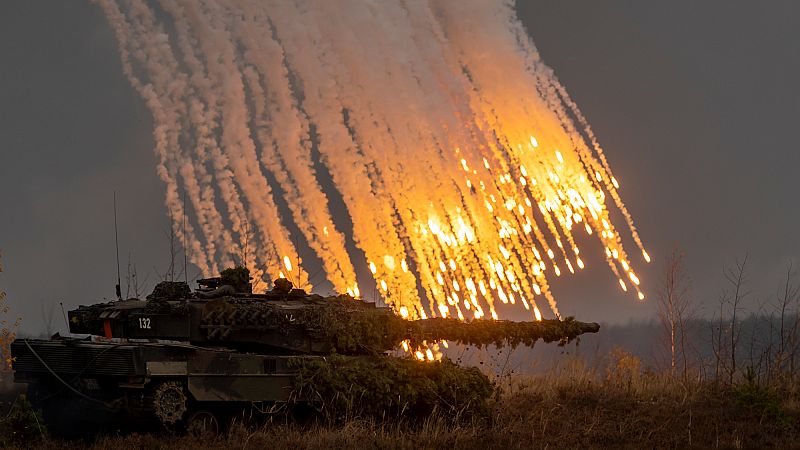
After US President Donald Trump announced last week that he would double steel and aluminium tariffs from 25 to 50%, the European Commission said it was prepared to impose retaliatory measures.
Germany, one of the world's largest export economies — particularly in cars, machinery, electrical goods, and chemical products — could face repercussions if an oversupply leads to falling prices, which may especially impact its struggling steel industry.
However, as the car industry turns its attention to rearming in the face of increased geopolitical tensions, the steel industry may be on the verge of a boom, as weapons need steel to exist.
Following years of struggle, could the German steel industry be poised to make a comeback?
German arms manufacturer Rheinmetall has seen the value of its share price surge since the start of the year, after the new German government, led by centre-right Christian Democrat (CDU) Friedrich Merz, promised to unleash billions of euros in extra spending on Germany's defence.
Hope is beginning to return to the industry as Germany ramps up defence supply production.
German defence policy spokesperson and member of the German parliament, Thomas Erndl, told Euronews that the steel industry is "currently suffering from high energy prices, like much of the economy."
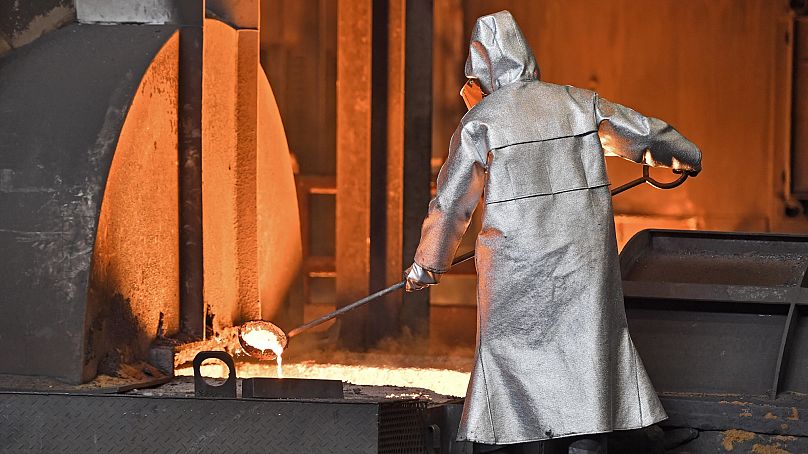
He said that Merz's government has taken "action to quickly reduce this burden and support the industry with further market-based instruments. This is not just an economic issue but also a matter of security policy," although he added that subsidies are not currently being considered.
According to the new German government coalition agreement, electricity tax will be reduced to the minimum allowed in Europe, slashing grid fees and cutting surcharges.
Is lowering energy costs enough to save a dwindling sector?
Due to cheap imports from China, exploding energy prices across Europe, and the transition to more climate-friendly hydrogen, the steel industry has been struggling and spluttering for a while.
The number of employees within the steel sector in Germany has been declining dramatically for decades. Around 175,000 people were employed in the steel industry in 1990. Today, there are just over 78,000.
Tobias Aldenhoff, head of economic and trade policy at the German Steel Association, told Euronews that the steel industry in Germany is currently under massive pressure.
He pointed to the transition from fossil fuels to climate-neutral production and said the environment was already challenging to begin with.
According to the association, crude steel production has fallen by 12% so far this year, and was hampered by crises last year.
The steel industry is also important for the car, mechanical and engineering industries.
"If the customer industries are doing better again, this will also have a positive effect on steel demand. The extent to which the steel companies can participate in this depends on the framework conditions," Aldenhoff added.
The association said it's really important for the EU to employ "effective means of defending itself against the consequences of price dumping or the steadily increasing international overcapacities, especially in China".
The European Commission launched a Steel and Metals Action Plan in March, designed to minimise unfair trade measures imposed on the steel sector by international competitors and review import limits that were set during the last Trump administration, and are due to end in June 2026.
Aldenhoff said that "there is an urgent need for a new effective instrument that protects the EU market from being overwhelmed by mass imports. In addition, the existing anti-dumping and anti-subsidy instruments need to be revised."
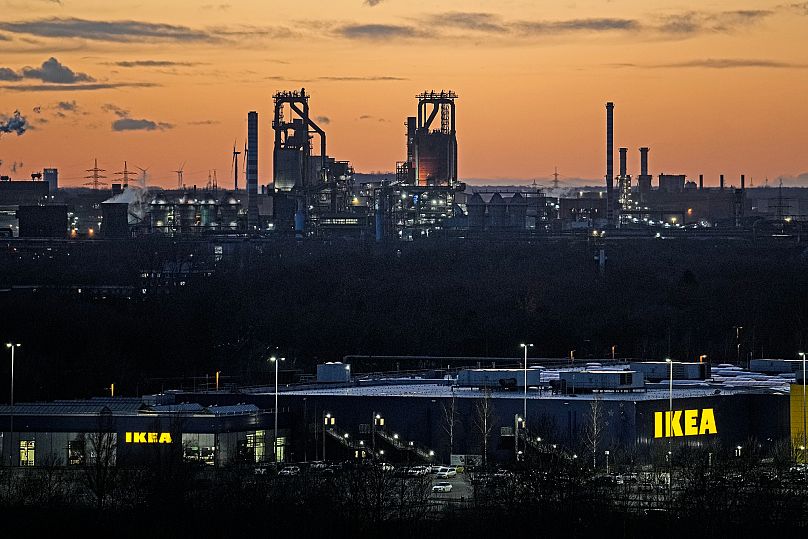
Bad news for the German economy
However, German industrial giant Thyssenkrupp is reportedly preparing to sell an additional 30% stake in its steel division to Czech billionaire Daniel Křetínský, who already acquired a 20% stake last year.
The company is currently being broken up and sold off in parts, with plans to cut 11,000 jobs, according to media reports.
The dismantling of the 200-year-old German firm serves as a metaphor for the broader German economy. Poor overseas investments and soaring energy costs have rendered steel production increasingly unprofitable.
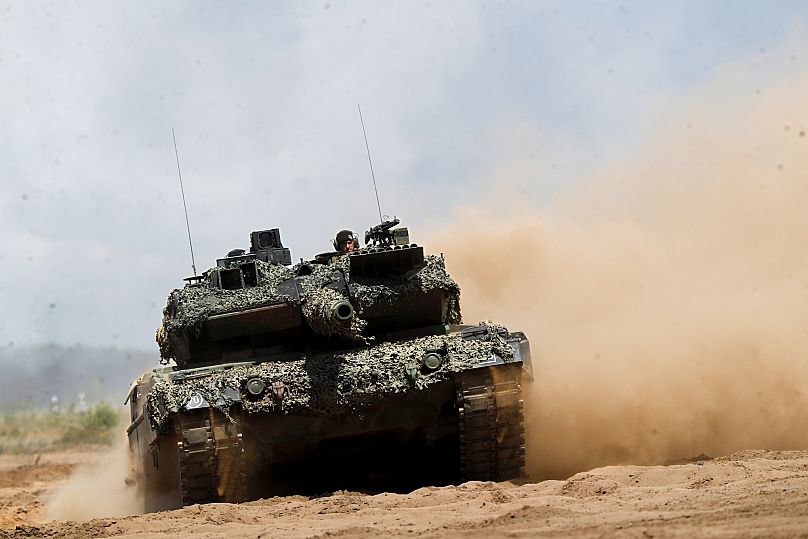
The industry is also suffering from a global oversupply of steel, primarily from Asia. ThyssenKrupp Steel recently posted a loss of €23 million for the first half of the year.
A Rheinmetall spokesperson told Euronews that it welcomes the development of the armoured steel market diversifying, as new suppliers, including from Germany, are producing steel.
After ThyssenKrupp stopped producing armoured steel a few years ago, Rheinmetall was mainly dependent on foreign supplies, predominantly from Sweden.
Rheinmetall said it has already purchased the initial supplies from domestic sources within Germany.
"Rheinmetall's demand for armoured steel amounts to several thousand tonnes per year, with demand doubling in the past two years alone," the spokesperson said, highlighting the price and availability are most important for Rheinmetall customers.
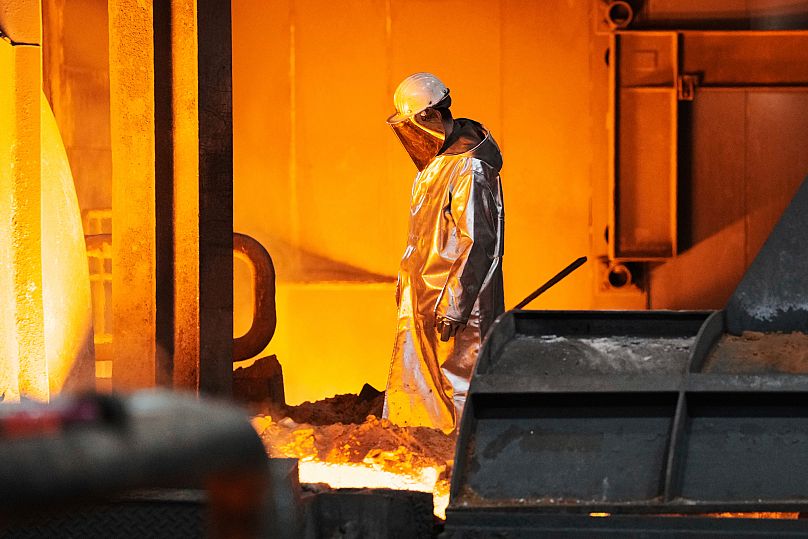
Is now the right time for the ThyssenKrupp steel sector to close?
The closing of the steel arm of ThyssenKrupp has been on the cards for a long time, although the company will still retain 50% ownership even if Křetínský does buy the other 30%.
The possibility of the German government bailing out Thyssenkrupp is also highly unlikely, as they lack the expertise to manage such a company. If the company continues to incur losses, taxpayers would ultimately bear the financial burden.
The new race to rearm Germany is not enough to keep a steel plant open.
According to experts familiar with the German steel industry, companies currently have little competitive advantage in staying in Germany as the economy is stagnant.
Steel has long been a global commodity, and Germany already collaborates with the Czech Republic in the automotive sector. So whilst the sale of Thyssenkrupp's steel division may not spell trouble for the defence industry, it is a significant loss for the German economy.







